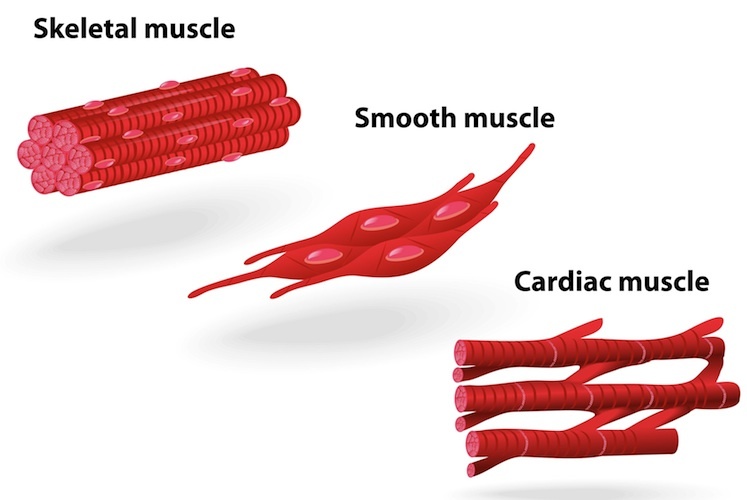Muscles are a type of tissue in the human body that are responsible for movement, stability, and maintaining posture. There are over 600 muscles in the human body, each with a specific function and purpose.
There are three main types of muscles in the human body: skeletal, smooth, and cardiac.
Skeletal Muscles

Smooth Muscles
Smooth muscles are found in the walls of internal organs, such as the stomach, intestines, and blood vessels. They are responsible for involuntary movements, such as the contractions of the digestive system.
Cardiac Muscles
Cardiac muscles are found in the heart and are responsible for pumping blood throughout the body. Unlike skeletal and smooth muscles, cardiac muscles are involuntary and cannot be consciously controlled.
How Muscles Work
Muscles work by contracting and relaxing. When a muscle contracts, it shortens in length, pulling on the bones to which it is attached and causing movement. When a muscle relaxes, it lengthens, allowing the bones to return to their original position.
Muscles are controlled by the nervous system, which sends signals to the muscles to tell them when to contract and relax. The strength and speed of a muscle's contraction are determined by the number and frequency of these signals.
Muscle Growth and Development
Muscles can grow and develop in response to exercise and physical activity. When muscles are subjected to stress, such as lifting weights or running, they undergo microscopic damage. The body responds to this damage by repairing and strengthening the muscles, resulting in increased muscle mass and strength.
Proper nutrition is also important for muscle growth and development. Muscles require protein to repair and grow, and a diet that is high in protein can help to support muscle growth.
Muscle Health and Maintenance
Maintaining healthy muscles is important for overall health and well-being. Proper hydration, nutrition, and rest are all important for muscle health and recovery.
Stretching and mobility exercises can also help to maintain healthy muscles and prevent injury. Regular exercise and physical activity can help to maintain muscle strength and function, as well as overall health.
Conclusion
In conclusion, muscles are an essential part of the human body that are responsible for movement, stability, and maintaining posture. There are several different types of muscles, each with a specific function and purpose. Understanding how muscles work and how to maintain their health is important for overall health and well-being. By engaging in regular exercise, maintaining proper nutrition and hydration, and getting adequate rest, we can help to keep our muscles healthy and strong.
